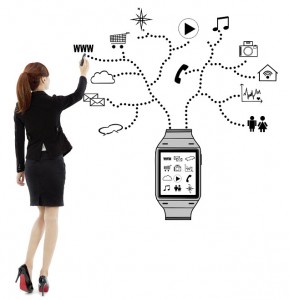Pebble believes that some of the current wearables that are being released have been overcomplicated.
It is starting to become difficult to find a smartphone or electronics manufacturer that has not either released, unveiled, or at least considered the creation of its own smartwatches, but at the same time, these devices have yet to truly take off.
Many in the industry believe that the rollout of the Apple Watch will bring these wearables into the mainstream.
However, one of the most established brands of smartwatches has now stated that it feels that many of the companies that have attempted to create their own gadgets have actually over thought what the devices should be. Primarily, the difference between a standard wristwatch and the upgraded wearable technology is that it offers a range of additional features aside from telling the time and date, and perhaps even adding a stopwatch or alarm clock option. They tend to bring the user notifications for incoming calls and texts and have controls for music playback, for example.
But as the market for smartwatches becomes increasingly crowded, brands are working hard to stand out.
 This has caused them to add broad spectrums of new features and options that may or may not be all that appealing to the user. According to Pebble, many of the additional features that are being incorporated into the devices in the name of differentiating them from one another have actually been overcomplicating things. Speaking of the wearable technology devices that have been launched by Samsung and Apple, Monica Isla, a Pebble spokesperson, said that “I think they overthink what people are going to do with them.”
This has caused them to add broad spectrums of new features and options that may or may not be all that appealing to the user. According to Pebble, many of the additional features that are being incorporated into the devices in the name of differentiating them from one another have actually been overcomplicating things. Speaking of the wearable technology devices that have been launched by Samsung and Apple, Monica Isla, a Pebble spokesperson, said that “I think they overthink what people are going to do with them.”
Isla later went on to say that “We don’t lose sight that it’s a watch. I think a lot of people lose the fact that it’s a watch. It’s not a phone. It’s not a gadget. It’s a watch and time is what matters to people.”
Clearly, it is Pebble’s opinion that smartwatches are great to act as wristwatches that also have additional bonus features such as alerts and notifications, but when all is said and done, the more complex tasks can simply be done on a smartphone, where they will be more convenient and efficient, anyway.

 The
The 